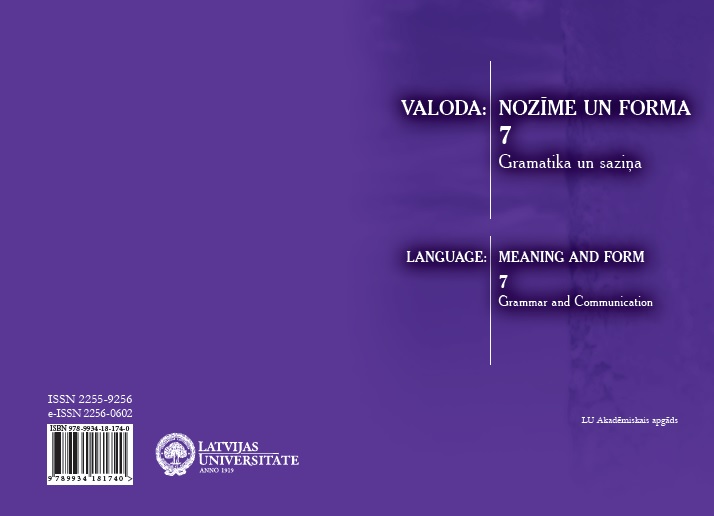Partitives and genitives in negated sentences in Finnish, Latvian and Lithuanian
Partitives and genitives in negated sentences in Finnish, Latvian and Lithuanian
Author(s): Marja LeinonenSubject(s): Language and Literature Studies, Theoretical Linguistics, Applied Linguistics, Comparative Linguistics, Finno-Ugrian studies, Baltic Languages
Published by: Latvijas Universitātes Akadēmiskais apgāds
Keywords: Baltic; Finnish; case variation; subject; object; negation;
Summary/Abstract: In Baltic and Finnic languages, the subject and object cases show a similar variation, with nominative or partitive genitive subjects and accusative or partitive genitive objects. The similarities are stronger between Finnic (here represented by Finnish) and Lithuanian, whereas in Latvian the use of the partitive genitive is decreasing. This applies both to affirmative and negated sentences. In this paper, the main attention is paid to the Latvian object cases with negation. Examples from literature, both original and translated from Finnish, were presented to a small group of native Latvian speakers living in Finland, with the expectation that the strong similarities between Latvian genitive and Finnish partitive use with negation might affect the choices. However, that did not seem to be the case. The genitive appears to be specialized to express emphatic negation. Genitives of subject in negated existential sentences were compared in translations of Finnish fiction. Partitives are the rule in negated existential sentences in Finnish, and partitive genitives almost to the same extent in Lithuanian. Again, in Latvian the use of the genitive in this function is decreasing. As a rule, it applies to the existential nebūt ʽnot to beʼ, although spoken language tends towards the nominative.
Journal: Valoda: nozīme un forma
- Issue Year: 2016
- Issue No: 7
- Page Range: 89-103
- Page Count: 15
- Language: English

